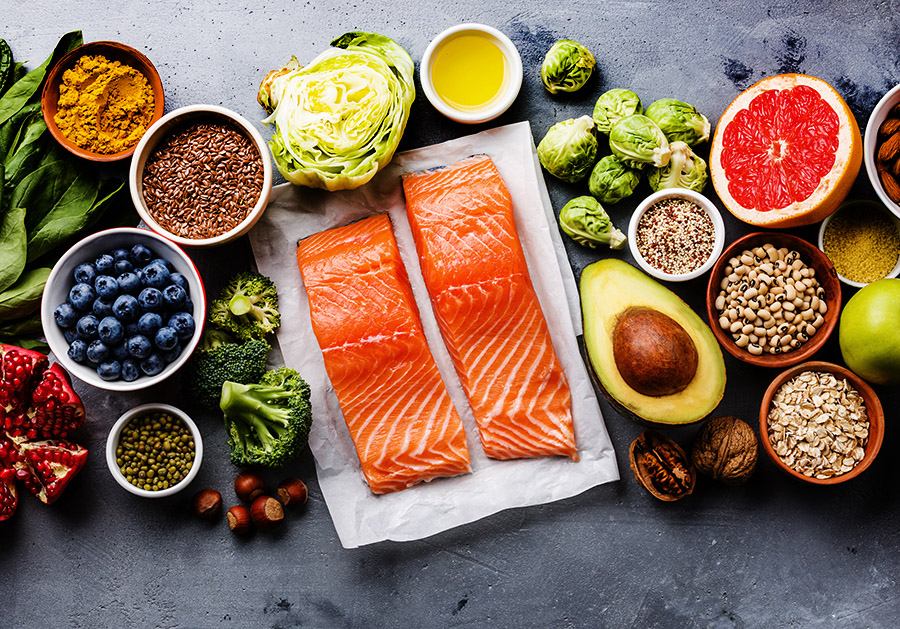Pain & Symptom Management

Pain
Many people with pancreatic cancer will experience some type of pain. The main causes of pain include:
- the cancer pressing on nerves in the surrounding areas and organs
- side effects from treatments such as chemotherapy and radiotherapy
- blockages in the bowel or bile duct
- bone pain if the cancer has spread to the bones
The most common way of controlling pain is with medications such as morphine (for severe pain), codeine (for moderate pain) and paracetamol (for mild pain). It is usually possible to reduce the pain or relieve it completely.
Your medical specialists may also recommend surgery, chemotherapy or radiotherapy as a means of relieving pain. Surgery can reduce or remove a tumour or treat blockages which are causing pain. Chemotherapy and radiotherapy can shrink or slow down the growth of a tumour or treat other areas where the cancer has spread.
Pain can be caused by pancreatic tumours pressing on nerves near the pancreas. Nerves carry pain signals to the brain. Pain relief may be possible through a procedure called a celiac plexus block which delivers anaesthetic by injection into the nerves in your back.
Complementary therapies such as breathing and relaxation techniques, hypnotherapy, massage, meditation and acupuncture may also be helpful for pain relief. Ensure your medical team is aware of any complementary therapies you may be considering as they may affect your medical treatments.
Tips on Coping with Pain
- Communicate with your treatment team about any pain you are experiencing. Pain is often easier to get under control when it is treated early.
- Keeping a ‘pain diary’ to track your pain, its severity, and what makes it better or worse can help provide clues to your medical team about your pain. PanKind has a Pain Diary available to download.
- Try complementary therapies such as massage and acupuncture.
- Resting, heat packs, warm baths can sometimes help control the pain.
- Distraction can sometimes help – listening to music or podcasts, chatting with friends, watching a movie or gentle exercise.
- Don’t leave pain too long before taking your pain-relieving medications as they won’t work as well if you do. Medication is most effective when taken on a regular schedule rather than on an as-needed basis.
- Psychological strategies such as breathing exercises, progressive muscle relaxation and mindfulness, can help people cope with pain. Ask your medical team about supports available in your area.
Nutritional and Dietary Problems
People with pancreatic cancer often face problems with their eating, drinking and overall dietary habits, and weight loss is common. People who have had a Whipple’s operation will need to take enzyme supplements with each meal to help with digestion. Other issues can include loss of appetite, nausea and vomiting, loss of taste and taste changes and mouth problems such as ulcers and thrush. Managing your diet, blood sugar levels and weight can be challenging, and we recommend all patients with pancreatic cancer see a qualified dietitian as good nutritional care improves tolerance of treatment and outcomes.
Tips for Building Up Your Diet (high protein, high energy)
- have small, frequent meals and snacks
- use convenience foods if you are too tired to prepare food
- cook in bulk and freeze individual portions
- have foods rich in protein such as meat, poultry, fish, eggs, dairy products, beans, legumes, nuts and seeds
- have energy-dense foods such as oils, avocado, nuts, seeds, peanut butter, butter, margarine, full-fat dairy products
- use nutritional supplements
Pancreatic Enzyme Replacement Therapy (PERT)
Pancreatic enzymes can help to ensure that all the food you are eating can be used by the body and keep you nourished. If the pancreas is unable to secrete the enzymes necessary for digestion, you may experience pain or feelings of indigestion after eating, bloating and very foul-smelling gas and stools, changes in your bowel actions, stools that are oily and float, changes in the colour of your stools (light coloured) and weight loss. Pancreatic enzyme insufficiency is very common in people who have pancreatic cancer. Taking pancreatic enzymes will help your body digest the food so that it can be absorbed into the body.
Pancrelipase is the most widely prescribed pancreatic enzyme. It comes in capsule form and is taken orally with a glass of water with every snack or meal. It is best to consult with an experienced dietitian to get your dosage correct. For further information, see our diet and nutrition page.
Supportive Care (Palliative Treatment)
Some people think that supportive care, also known as palliative treatment, is only for people at the end of life. However, it can help at any stage of an illness and provides support for managing symptoms and living as fully and comfortably as possible. Early referrals to palliative care specialists can ensure you have the right support all throughout your cancer journey. Learn more about supportive care.
Bowel Problems
Some chemotherapy drugs, radiotherapy, surgery and antibiotics can cause diarrhoea. This may be related to a pancreatic exocrine insufficiency, and you will need to take pancreatic enzyme supplements. Some pain-relieving drugs and anti-nausea medications can cause constipation. Ask your nurse or dietitian how to reduce the chance of becoming constipated if you need to take these medications. Your doctor may suggest medications to help relieve these symptoms, and a dietitian may also be able to provide further support and advice.
Some people experience a bowel obstruction which can cause abdominal pain, cramping, constipation, feeling sick and vomiting, or faecal fluid leaking from the bowel. Tell your doctor if you are experiencing any of these symptoms as bowel obstructions can be relieved.
Tips on Coping with Bowel Problems
For diarrhoea:
- Drink plenty of fluids to avoid dehydration.
- Avoid caffeine and alcohol and reduce the amount of fibre in your diet.
- Use pads if you have difficulty making it to the toilet in time. There are many comfortable and discreet options available.
For constipation:
- Drink plenty of clear fluids to help soften stools in the bowel.
- Get regular exercise if possible.
- Increase fibre in your diet with wholegrain foods, fresh fruit and vegetables.
Nausea and Vomiting
The disease itself as well as treatment for the disease (chemotherapy, radiotherapy, medications) may cause nausea and vomiting. It’s important to let your medical team know about symptoms you are experiencing as there are options to provide relief such as anti-nausea medications. Sometimes, nausea may be due to a blockage in the duodenum, the first part of the small intestine. Surgery to treat the blockage may provide symptom relief. Nausea may also be due to difficulty digesting food which can be treated with pancreatic enzyme replacement therapy.
Persistent vomiting and not being able to keep any food or liquid down can be a sign that something is wrong, and medical advice should be sought from your GP, medical team or emergency services.
Tips for Managing Nausea and Loss of Appetite
- Eat 5 to 6 small meals a day, and snack whenever you are hungry. Going long periods without food can make nausea worse.
- Have food or drink with ginger, e.g. ginger ale, ginger tea or ginger biscuits.
- Eat what you feel like, when you feel like it, e.g. have cereal for dinner or a main meal at lunch.
- Try to eat in pleasant surroundings and with family or friends. Use distraction by eating with others, watching television, listening to music.
- Try placing food on smaller plates rather than larger plates as a big plate of food may put you off eating.
- If the smell or taste of food makes you nauseous, eat food that is cold or at room temperature. This will decrease its odour and reduce its taste.
- If you are having trouble tasting food, try adding spices and condiments to make the foods more appealing.
- If you have changes in taste, such as a metallic taste in your mouth, try sucking on hard candy such as mints or lemon drops before eating a meal.
- Keep snacks handy. People tend to eat more when food is readily available.
You may also benefit from complementary therapies such as hypnosis, relaxation techniques, guided imagery, systematic desensitisation and acupuncture or acupressure. Before using any of these treatments, check with your cancer care team to see if these are safe options for you.
Fatigue
Feeling tired and lacking energy to do day-to-day things are common symptoms of pancreatic cancer and its treatment. This type of fatigue often doesn’t go away with rest. Some people worry that fatigue means the cancer is getting worse or their treatment isn’t working, but this isn’t necessarily true.
Tips on Coping with Fatigue
- Plan your day and set manageable goals.
- Plan for regular rests throughout the day.
- Ask for help and take any offers of help from family and friends to cook, clean, do the shopping or take you to appointments.
- Sit down when doing tasks such as meal preparation, folding washing or talking on the phone.
- Eat nutritious meals when possible to keep up your energy.
- Say no to things you really don’t want to do.
Breathlessness
Breathlessness can happen in people with pancreatic cancer due to:
- cancer spreading to the lungs
- a fluid build-up (ascites) in the abdomen or around the lungs (pleural effusion)
- low red blood cells (anaemia) which can be a side effect of chemotherapy or radiation
Depending on the cause of your breathlessness, there may be medical treatment to help. This may involve having a blood transfusion for anaemia or draining the fluid from your abdomen or lungs.
Tips on Coping with Breathlessness
- If possible, try to relax by concentrating on slowing down your breaths.
- Relaxation techniques such as listening to meditation podcasts or music helps some people.
- Keep a fan in your room or open a window to help circulate air and prevent feelings of panic.
- Sit up when breathless and lean over a table to help expand the lungs as much as possible.
- If lying down to sleep makes your breathing worse, use lots of pillows to prop you up. If you have one, sleep in a recliner chair or adjustable bed.
- Morphine can sometimes help with breathlessness. Discuss this with your doctor.
Low Mood and Anxiety
Feeling low in mood and anxious are common and natural responses for someone with cancer. There are many reasons this may happen, including:
- visible changes the cancer has caused to your body (e.g. scars, hair loss, fatigue, weight loss)
- changes/losses the cancer has caused to your day-to-day life (e.g. work, hobbies, relationships)
- fear of the future and/or fear of the cancer spreading or coming back
- challenges of coping with the symptoms and side effects of the cancer and its treatments
Feeling sad or low in mood for a few days is very different to feeling depressed for long periods of time. People with cancer who are suffering depressive symptoms are typically diagnosed with ‘adjustment disorder’ as symptoms can be explained by your physical health. These feelings may not always go away with time, and it can be helpful to seek support from your GP, psychologist or a counsellor as there is a lot that can be done to help with depressive symptoms. If you have any thoughts of self-harm or suicide, we strongly encourage you to seek medical help immediately through your GP, Lifeline (13 11 14) or Beyond Blue (1300 224 636).
Tips on Coping with Low Mood
- Eat a well-balanced diet with lots of fresh foods and drink plenty of water.
- Avoid caffeine, alcohol and recreational drugs, which all make it more difficult to cope with feeling low in mood.
- Try to get regular gentle exercise, even if it is just a short walk around the block each day. Many people say exercise lifts mood.
- Some types of complementary therapies may help improve mood (e.g. massage, yoga, meditation and acupuncture).
- Share your feelings with someone you trust which can help you feel less alone.
- Try to have some structure and routine in your days. Some people use a weekly planner to make sure they are getting up, eating and socialising through the day.
Concentration and Memory Loss (‘Chemo Brain’)
Chemotherapy and other treatments may affect your ability to concentrate and remember things day to day. Chemo brain is a common term used by people who have cancer and describes concentration and memory problems faced during and after cancer treatment. Another term is ‘chemo fog’ meaning things in your brain are foggy and there is some cognitive impairment. This often improves once treatment has finished, but there can be ongoing difficulties with your ability to concentrate.
Peripheral Neuropathy
Some chemotherapy drugs can damage nerves that affect your feeling and movement in your hands and feet. This symptom can be mild, but for some people it can be severe and affect quality of life. While there is no treatment for peripheral neuropathy that will improve the nerve damage, there are ways to reduce the impact. These include a combination of pain medications, vitamins, lotions and exercise to help you manage symptoms. Speak to your doctor if you have symptoms.
Tips on Coping with Neuropathy
- Physical therapy/exercise can help with strength, balance and safety.
- Occupational therapy can help some people improve motor skills to aid in daily activities.
- Low-impact exercise such as yoga, tai-chi and swimming may help, but consult your doctor before starting any new exercise program.
- Acupuncture and meditation have helped some people.
- Some evidence suggests eating a well-balanced diet and eliminating alcohol and smoking.
- Maintain your safety by:
- Using gloves to protect your hands when doing household tasks
- Taking extra care using sharp objects
- Regularly inspecting you fingers and toes for any cuts, redness or soreness
- Always turn the cold water on first and gradually add hot water
- Don’t drive if you’re having trouble feeling the pedals or steering wheel
- Avoid walking barefoot on rough surfaces
- Keep floors clear of mats and other obstacles you can easily trip on.
Diabetes
Insulin is a hormone produced in the pancreas that helps control your blood sugar levels. If there are changes to how much insulin the pancreas is making, you can develop diabetes. Some people with pancreatic cancer may develop type 3C diabetes. Controlling diabetes is very important, and you may need to take insulin or tables to regulate your blood sugar. Your GP and a diabetes specialist nurse will educate you and help you manage your diabetes.
Always consult your doctor or health professional about any health-related matters. PanKind does not provide medical or personal advice and is intended for general informational purposes only. Read our full Terms of Use.
Thank you to the clinicians, researchers, patients, and carers who have helped us create and review our website information and support resources, we could not have done it without you.






